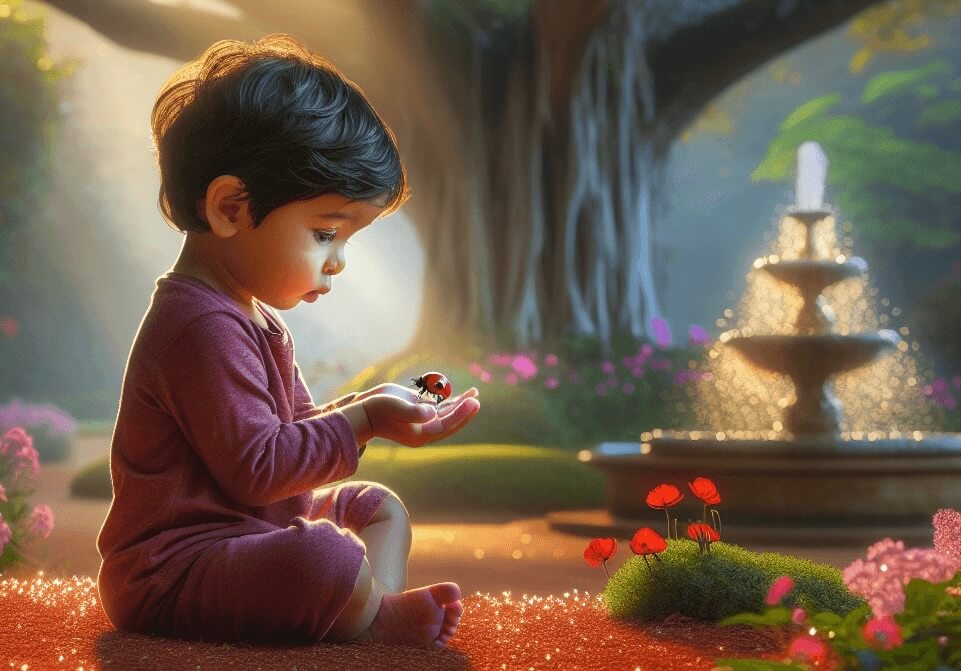
Have you ever watched a toddler become utterly absorbed in a simple activity, their concentration so intense it’s as if the world around them fades away? This natural capacity for mindfulness, often overlooked in the hustle and bustle of parenting, can be a foundational tool for fostering tranquility and presence in young children. As adults, we strive to incorporate mindfulness practices into our busy lives, but the realm of toddlerhood holds unique opportunities and challenges in nurturing this skill.
When we explore mindfulness in the context of toddlers, it’s about fostering an environment where the youngest amongst us can flourish emotionally and mentally. Mindfulness isn’t just a practice reserved for adults; its principles can be just as beneficial for children, even at a very tender age. Mindfulness for toddlers pivots around the idea of helping them cultivate attention to the present moment, awareness of their feelings and sensations, and the ability to manage their emotions in a nurturing way.
Laying the Foundation: Introducing Mindfulness to Toddlers
Launching into the world of mindfulness with a toddler can seem daunting, but it’s truly about integrating simple, playful activities that encourage awareness and emotional regulation. The goal here isn’t to enforce a regimented practice, but to weave mindfulness into their daily routines in a way that’s seamless and enjoyable.
Activity-based Focus Building
Let’s embark on a fascinating journey together – a journey of senses. For a toddler, the key to understanding mindfulness begins with engaging their intrinsic curiosity. Allowing them to deeply experience their five senses can serve as a ground-level introduction to mindfulness. Imagine a ‘Sensory Safari’ where we engage toddlers in a series of fun and interactive activities. We could have them close their eyes and identify different sounds, or play a ‘texture guess game’ where they reach into a bag and describe what they feel. These types of activities help hone their focus while connecting them to the immediacy of their experiences.
Gentle Yoga Moves
Who said yoga is only for grown-ups? Toddlers too can partake in the stretching and energizing benefits of yoga, albeit in a much more simplified form. Yoga can teach toddlers about body awareness and control. Picture them mimicking the posture of a tree or a cat, taking cues from the natural world that they find so captivating. Incorporating animal sounds and playful names for each pose can make the practice less intimidating and more fun, helping them to remain engaged and present.
Musical Connect
Music naturally grabs a toddler’s attention. Use it as a tool to teach mindfulness by having them move to the rhythm or freeze when the music stops. It’s about more than just fun; it’s a learning mechanism which teaches toddlers impulse control and focus. Plus, it’s an ideal way to get them invested in an activity that promotes an attentive mindset without them even realizing they are practicing the principles of mindfulness.
Breathing Exercises: A Simple Gateway
Life’s simplest yet most profound act — breathing — can be a vehicle for mindfulness. Teaching toddlers to be aware of their breath can be transformative. For instance, we can use playful imagery, asking toddlers to pretend they are slowly blowing out a candle or gently inflating a balloon. These visual cues allow them to connect with their breath in a constructive and controlled manner, a skill that can help soothe themselves when emotions run high.
The ‘Belly Buddies’ exercise is another excellent technique. Children lie on their backs with a stuffed animal on their stomachs and watch it rise and fall with their breath. It’s a physical representation of the breathing process that’s both calming and intriguing.
Guided Meditation Tailored to Toddlers
Traditional meditation might be impractical for the boundless energy of toddlers, yet a tailored form of guided meditation can work wonders. Picture a story-time where the tales are woven with prompts that get toddlers to imagine the feeling of the sun’s warmth, the texture of a feather, or the scent of a flower. As they visualize, they are brought into a mindful state, learning to focus their thoughts and attention in a directed manner.
Journey Through Nature
Never underestimate the mindfulness lesson that a simple walk in the park can provide. Nature is inherently engaging for toddlers, and natural settings can be an excellent backdrop for mindfulness practice. They can notice the different colors of leaves, feel the bark of trees, or listen to the chirping of birds — each interaction is a new bridge to the present moment.
During these moments outdoors, encourage toddlers to pause and take in their surroundings. They can touch the leaves, smell the flowers, or gaze at the sky, fostering a connection with the world around them and grounding them in the now.
Ultimately, mindfulness for toddlers is most effective when it is embedded in the fabric of their everyday life. By engaging with them during mealtime, story-time, or playtime with an emphasis on being present and attentive, we can impart the rudiments of mindfulness. We might, for instance, encourage them to notice the colors and taste of their food, or how their body feels as they build a tower of blocks. With each of these moments, toddlers learn to live in the present and become more aware of their environment and their reactions to it.
Engaging with toddlers on the mindfulness path is rewarding and can set the stage for a lifetime of self-awareness and emotional health. Whether through sensory activities, playful yoga, music, simple breathing exercises, or guided imagination, these joyful and interactive experiences become powerful tools for cultivating focus and presence in young minds. Let’s remember, the beauty of mindfulness for toddlers lies not just in the activities themselves, but in sharing the experience, guiding them with patience, and nurturing their innate capacity for joy and wonder in the moment.

